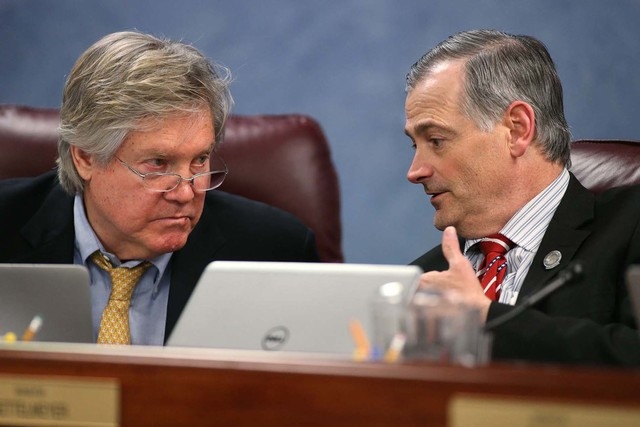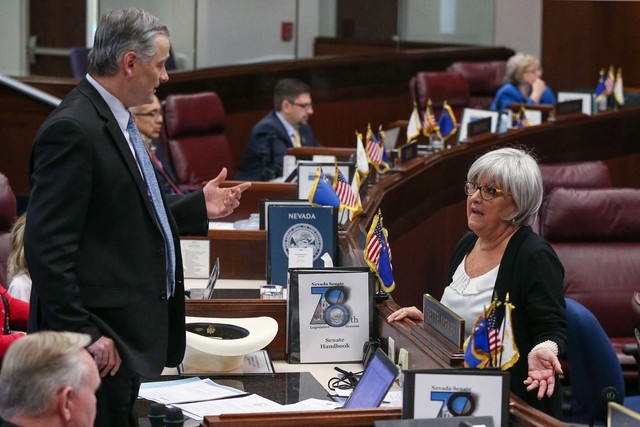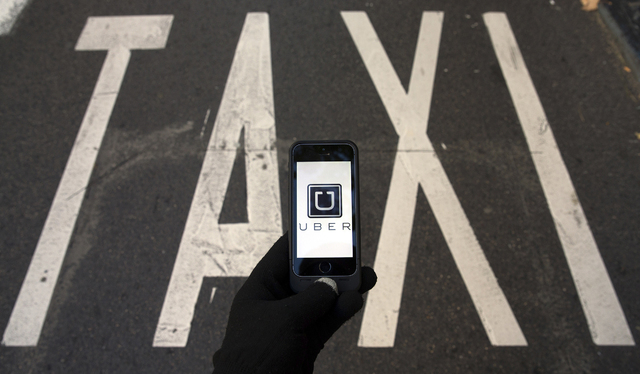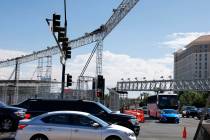New bill allowing Uber, Lyft operations sails through Senate
CARSON CITY — A bill authorizing ride-hailing companies like Uber and Lyft to operate in Nevada on Monday was resuscitated for the third time, this time winning passage in the state Senate.
The Senate voted 18-1 to approve Assembly Bill 175, sending the measure back to the Assembly after it was heavily amended to incorporate authorization for and regulation of transportation network companies.
Senators were poised to pass the measure Friday, a day after the upper chamber unanimously agreed to its provisions. But a deal hashed out to appease some safety concerns fell apart when some Democratic senators questioned Republican revenue projections that a tax on fares would raise $90 million to $100 million a year.
Senate Majority Leader Michael Roberson, R-Henderson, refused to delay the vote, leading to its defeat by one vote. But legislative fiscal staff Monday estimated the 3 percent excise tax could generate about $70 million over the biennium. That was enough to garner the two-thirds majority needed for approval.
Sen. Aaron Ford, D-Las Vegas, said he supports the bill and urged support.
The original Uber legislation, Senate Bill 439, first died last month in the Senate when Democrats withheld their support over public safety concerns, and it failed to get the 14 votes needed. It was revived last week as an amendment to AB175, which deals with lawsuits involving seat belts.
Under the bill, transportation network companies that connect drivers and riders through smartphone apps would be regulated by the state Public Utilities Commission. They would have to apply for a permit with the PUC and be subject to annual renewals. Fees would be set by regulation but renewals would be based on gross operating revenue.
The 3 percent ride tax would also apply to taxicab fares.
The bill mandates that the first $5 million generated goes to the state highway fund; the rest would feed state coffers.
Roberson said he intends to use $19 million in projected revenue to fully fund a new medical school at UNLV this budget cycle.
Drivers would undergo background checks before hire and every three years afterward. Those investigations must include a check criminal history and sex offender databases. Driving records would be checked annually.
Senate Democrats who opposed the original bill argued background checks should include checking fingerprints through a national database. The new measure requires the PUC to recommend how background checks should be conducted.
Drivers would be required to have liability insurance of at least $1.5 million for death or bodily injury that occurs while transporting passengers.
The bill now goes back to the Assembly, where Uber officials are making a full-court press to drum up support for passage.
“With just a few weeks to go in the legislative session, the Nevada Legislature is considering legislation to bring Uber back to Nevada,” Uber said in an email to supporters Friday. It urges backers to contact their Assembly member to express support.
Representatives of the taxicab and limousine industry are fighting the bill and claim Uber is trying to avoid regulation and muscle its way into the state.
Uber operated briefly in Nevada last fall before it a Nevada judge issued a preliminary injunction requested by the state to suspend its operations.
Contact Sandra Chereb at schereb@reviewjournal.com or 775-687-3901. Find her on Twitter: @SandraChereb.

RELATED STORIES
Someone will be unhappy if ‘Uber bill’ is enacted in Nevada
Henderson business leaders back Uber’s return
Despite Uber petition, service is still illegal in Nevada
See all of our coverage: 2015 Nevada Legislature.
Las Vegas police warn about enforcement calls on Uber



















